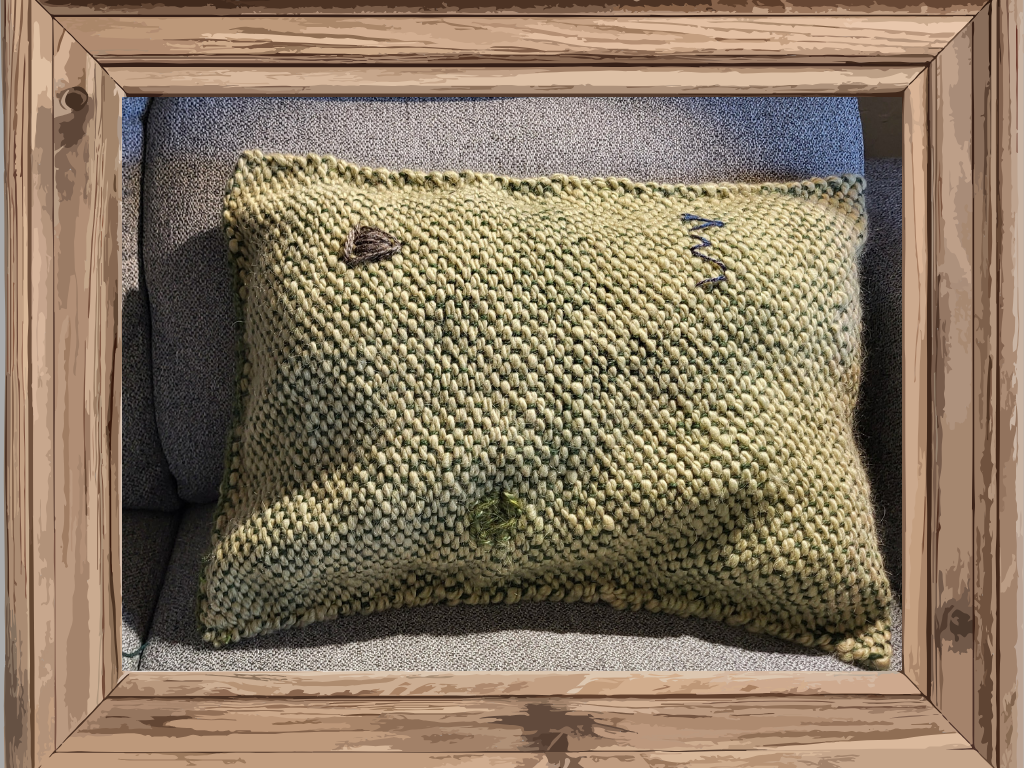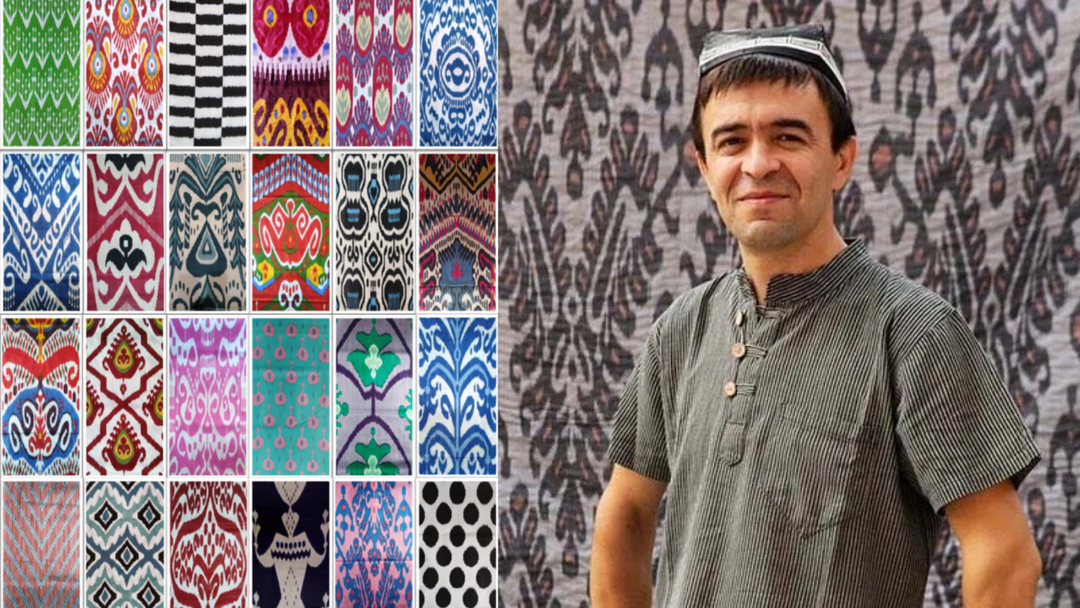The Senselessness of Ukraine
I woke up Saturday morning, well before sunrise, thinking about Ukraine and struggling to make sense of it all. Here we are–maybe, finally starting to come out the other side of a two-year global pandemic, and now we have Russia invading a neighbor and threatening nuclear attack if anyone "interferes."
There IS no way to make sense of it all. Or maybe there is . . .
GAIA Wanders Into My Brain
One of the words that wandered into my brain in that space between sleeping and waking was "Gaia." If you're a science fiction buff like me, that will probably be a familiar term. If not, I'll come back to that.

The Butterfly Effect
One of the other thoughts that wandered across the canvas of my sleepy brain was the "butterfly effect"– the concept that events in a tiny part of the world can have ripple effects across the street and even across the globe. And indeed, the situation in Ukraine is impacting millions of people worldwide: stock markets are going crazy, and hundreds of thousands of refugees from the fighting in Ukraine are stumbling across borders to countries that are not prepared to handle the sudden influx. Gas prices are skyrocketing. Americans are genuinely afraid that whatever our government does might trigger the use of nuclear weapons. In addition, the almost instant devaluation of the Russian ruble, increased by the economic sanctions imposed by other countries, is causing a massive reduction in the value of remittances sent home to families in Central Asia by migrant workers in Russia. That means that a lot of families are going hungrier than usual.
I've always loved the concept of the butterfly effect. It gives me hope that my small efforts with HoonArts have a positive ripple effect beyond what I can see. Indeed, even the effects I can see inspire me to keep going when financial success by standard business measures seems far away.
My Own Recent Butterfly Effect Examples
For example, last November, I was invited (on the recommendation of Munira Akilova, our embroidery designer in Tajikistan) to speak at a Zoom conference for a USAID-sponsored project on artisan entrepreneurship in Turkmenistan. So I prepared a short PowerPoint presentation in which I distilled many of the lessons I have learned over the last seven years as I have been working to build the HoonArts business. And I got up in the middle of the night to make my little presentation live to the audience in Turkmenistan, which was a lot of fun!
Then a couple of weeks ago, Munira asked for my input on a grant letter of interest that she was submitting for a project in Tajikistan. In that conversation, I connected with another consultant advising her. It turns out that this consultant is beginning work on an artisan project on a small island 300 km off the coast of Yemen. Again, with the help of my PowerPoint, I was able to share many of the things that I didn't know I didn't know when I began. I was delighted to give him the head start that I wish I had had when I first started. (though honestly, if I had understood the challenges better, I might have given up before I began).
At approximately the same time, a woman reached out to my co-host for our 3 'Stans Tour about potentially buying products for her artisan shop in South Africa. Cynthia referred her to me, and we had a Zoom conversation last week about my experience working with artisans in Central Asia. It turns out that she's just beginning her entrepreneurship journey working with Central Asian artisans. Once again, my experience (and my PowerPoint) gave her a big heads up about issues and challenges that she will face.
Being able to support these efforts on a small Yemeni island and in Durban, South Africa, and build these new far-flung relationships, helps inspire me to keep going even during a pandemic. I love the idea of having an impact far beyond little HoonArts.
Back to GAIA: It's All Connected
But what does this have to do with Ukraine? And why did "Gaia" wander up through my subconscious?
The Ukraine situation reminded me in a big, flashy, unmistakable way that "it's all connected." Just like the pandemic has reminded us of the same thing in so many ways. Even little Tonga couldn't escape the pandemic. And even Hong Kong, which was successful for so long at avoiding COVID, is battling the quick-spreading omicron variant. Supply chains everywhere have suffered. The divisiveness around masks and vaccines has also traveled the world, even to calm, sensible, and welcoming Canada. Moms who have to stay home to monitor children's remote education can't function at work as they could pre-pandemic. And restaurants that can't open can quickly go out of business, waiting for the pandemic to recede. And every day, the unvaccinated continue to die. The divisiveness dominating the media only makes everything worse.
These thoughts led me to Brené Brown's definition of "spirituality": "Spirituality is recognizing and celebrating that we are all inextricably connected to each other by a power greater than all of us . . . ." We are all inextricably connected to each other, whether we like it or not. Just like all the components of a natural ecosystem are connected to each other. Just as global warming is painfully teaching us that the entire global ecosystem (which includes people) is inextricably linked.

John Dunne expressed this idea far more eloquently than I, almost five hundred years ago (1624):
No Man is an Island
No man is an island entire of itself; every man
is a piece of the continent, a part of the main;
if a clod be washed away by the sea, Europe
is the less, as well as if a promontory were, as
well as any manner of thy friends or of thine
own were; any man's death diminishes me,
because I am involved in mankind.
And therefore never send to know for whom
the bell tolls; it tolls for thee.
We are slow learners.
The Science Fiction Version of GAIA
Now "Gaia" enters the picture. If you're not familiar with that term, Gaia was the Greek goddess of Earth, the mother of all life, a concept in many other cultures throughout history. In the environmental movement, Gaia has evolved into an idea that all life on Earth is connected. See, e.g., the article "Gaia: Everything on Earth is Connected" on the Greenpeace website for a more detailed description of the scientific evolution of this theory.
But when "Gaia" popped into my head in that drowsy time between sleeping and waking, I wasn't thinking about the environmental or scientific concept of Gaia. Instead, I was thinking about the science fiction version of Gaia: an entire planet is a sentient being, made up of millions of living components that might themselves also be sentient beings.
I know, that's pretty "woo woo." For most of my life, I've been focused on the rational, the exact opposite of "woo woo." Even though I was a child of the sixties, I never bought into the "Age of Aquarius" and all the related "New Age" thinking. I just didn't trust the "woo woo" stuff, though I did enjoy reading about it in science fiction.

Brain Research Proves the "Woo Woo" is Real
And then I started learning about what brain research is teaching us about the "woo woo" side of things. Emotions have real physiological impacts on our bodies and long-term health. The single best predictor of longevity is positive social connections. Stress impacts our bodies in the short term and the long term. Meditation and other "woo woo" practices have measurable physiological value. Shifting our mindset can have an enormous effect on our experience of life, our health, our relationships, even our business financial success. The relationship between mental and physical health is crucial.
As a rational "left-brainer," I slowly came to realize that the "right brain, woo-woo" side is "real." It's not just science fiction. In previous newsletters and blogs, I've shared some of my own experiences in coming to appreciate and trust the "woo woo" side of life.
And that brings me back to the science fiction version of "Gaia." I love analogies because they help me make sense of the complexity of life and circumstances that otherwise might overwhelm me. The best analogies help me feel like I can make a difference in this crazy world.
GAIA Might Help Us Manage the Complexity
So as I thought about Gaia, an idea popped into my head. What if we started to consciously make choices as if the entire Earth were a sentient being? What if, instead of working to prove that "we" are right and "they" are wrong, we started from the premise that we're all "inextricably connected" whether we like it or not.
And instead of letting our "primitive brain"—the amygdala, the automatic system that, when faced with perceived danger, sends us into fight, flight, or freeze, we brought our collective, conscious brain–our collective, pre-frontal cortex, online? What if we stopped focusing on what's best for our part of the body (say, the "big toe" or "the brain," depending on your point of view) and consciously started working on what will improve the holistic health of the entire global body (people and planet included). That includes considering the health of every single cell as part of the whole. No more just worrying about the "brain" or the "right arm."
Ukraine is Like Cancer
So how does that Gaia analogy relate to the craziness of the Ukraine situation? In my Gaia analogy, Ukraine is an example of what happens when the "pre-frontal cortex" is offline and resources (political power, money, natural resources, media attention) become too concentrated. They become an unchecked cancer harming the health of the global body. After all, one of the hallmarks of cancer is the unrestrained growth of cancerous cells. And these centers of concentrated power/resources are reacting from that primitive brain: driven by fear.
Systemic Change and Us "Little Guys"
Systemic change is needed. The current system just isn't working! But the concentration of political power, money, natural resources, etc., is only getting worse. So how do we tiny individual cells make a difference?
I believe the secret is conscious collaboration. First, we must recognize our fear and our automatic tendencies for fight, flight, or freeze and then move past that state. Next, we need to bring a collective pre-frontal cortex online and start building a new system founded on collaboration and consideration of the holistic health of the entire global body.
That means that every voice matters, every "cell" matters. Plans, projects, and "solutions" that don't take into account the reality of the circumstances facing individual cells (people, communities, natural ecosystems) are just pushing the problems around, not creating a whole that can thrive, not just survive.
Conscious, Long-Term Collaborative Thinking
We must consciously consider the ripple effects of choices we make at the individual and collective levels. And this is a long game, with no magic pills. No one turns a sick, unhealthy body into a thriving athletic body overnight. So we must think long-term and measure long-term. No more focus only on quarterly financial results, the next election cycle, the number of social media followers, and the other short-term metrics world leadership has become addicted to.
What does that mean for "little guys" like HoonArts and me? For one thing, it means we must get out of our comfort zone and think systemically and think about our own ripple effects. And we can't kid ourselves that it's easy or fast. It's hard on so many fronts. For example, we typically struggle with limited resources. In addition, we have to get past our own fears and our own limiting beliefs—all very "woo woo."
I'll give you a couple of very concrete examples. I told you I was thinking about this topic when I woke up Saturday morning and knew I wanted to write something for my next blog and newsletter about this topic. It's now mid-day Monday.
I spent all weekend waging an internal battle with procrastination and rationalization: I need the weekend rest . . .I shouldn't put it off . . . I worked last weekend, so I deserve some time off . . .The old system of "you have to work hard all the time" is the old paradigm I want to change . . .Maybe this is too long-winded for my blog/newsletter . . . Is this going to make any difference for HoonArts? Is this whole topic appropriate for the HoonArts audience? I don't know how to "keep it simple". . . I said I was going to send out a weekly newsletter, and now I'm breaking my word . . . Who made the rule that I need to send out a weekly newsletter?.. I really don't like writing. Am I just lazy? And on and on.
Strangely enough, when I woke up on Monday morning, I felt like writing this blog. And it didn't seem so daunting. But I spent a lot of useless energy and anxiety worrying about NOT writing it over the weekend. And the news from Ukraine continues to be extremely frightening.
The only thing for sure I can say is that even writing about this idea is hard! Before I do anything concrete! And most of it is in my head! But at least I've taken it out of my head and put it on paper, and now I can move on to action.
Here's my other concrete example of the challenge involved in acting on the "Gaia" idea. I'm a new member of Catalyst2030, a grassroots member organization committed to bringing people and organizations around the world together to implement systemic change through collaboration to accelerate progress towards achieving the UN's Sustainable Development Goals (SDGs). Ever since I joined Catalyst, I've been telling myself that I need to check out the ongoing "collaborations" identified on the Catalyst website, but I haven't found (i.e., made) the time yet.
Last week, Catalyst put out a call for presentation proposals for the upcoming worldwide "Catalyst Week" in May. Since I love to talk to like-minded people and share ideas, that appeals to me. But the invitation made it clear that priority would be given to presentations that involved collaborations with other members.
And immediately, I had a whole host of reasons why that wouldn't work for me: I don't know any of the other members well enough to propose a collaboration. I am too new to this organization, so I should watch for a while longer. Who will want to listen to me when there are members who have so much more experience and have achieved so much more success? You get the idea!
So my commitment to you, the HoonArts audience, is to check out the collaborations posted on the Catalyst website, reach out and see who else might like to work together on a joint presentation. That's my project for this afternoon. I'll report back next time.
And thank you for following me along this long and winding "woo woo" path. I'm not sure where it will lead me (or you). But I know the "Gaia" analogy is a way for me to make sense of our crazy world and feel like I have a new roadmap.
I believe it will help shift my perspective. It will focus my attention on ways to consciously increase collaboration and positive ripple effects instead of just reacting to the craziness or railing against the unfairness of the existing systems and circumstances. And when I inevitably find myself overwhelmed or railing against someone else, I'll try to shift my thinking and ask myself, "What can I do to work collaboratively on this? And how can I increase the positive ripple effects for the whole (family, community, nation, world)?” Wish me luck!







Leave a comment